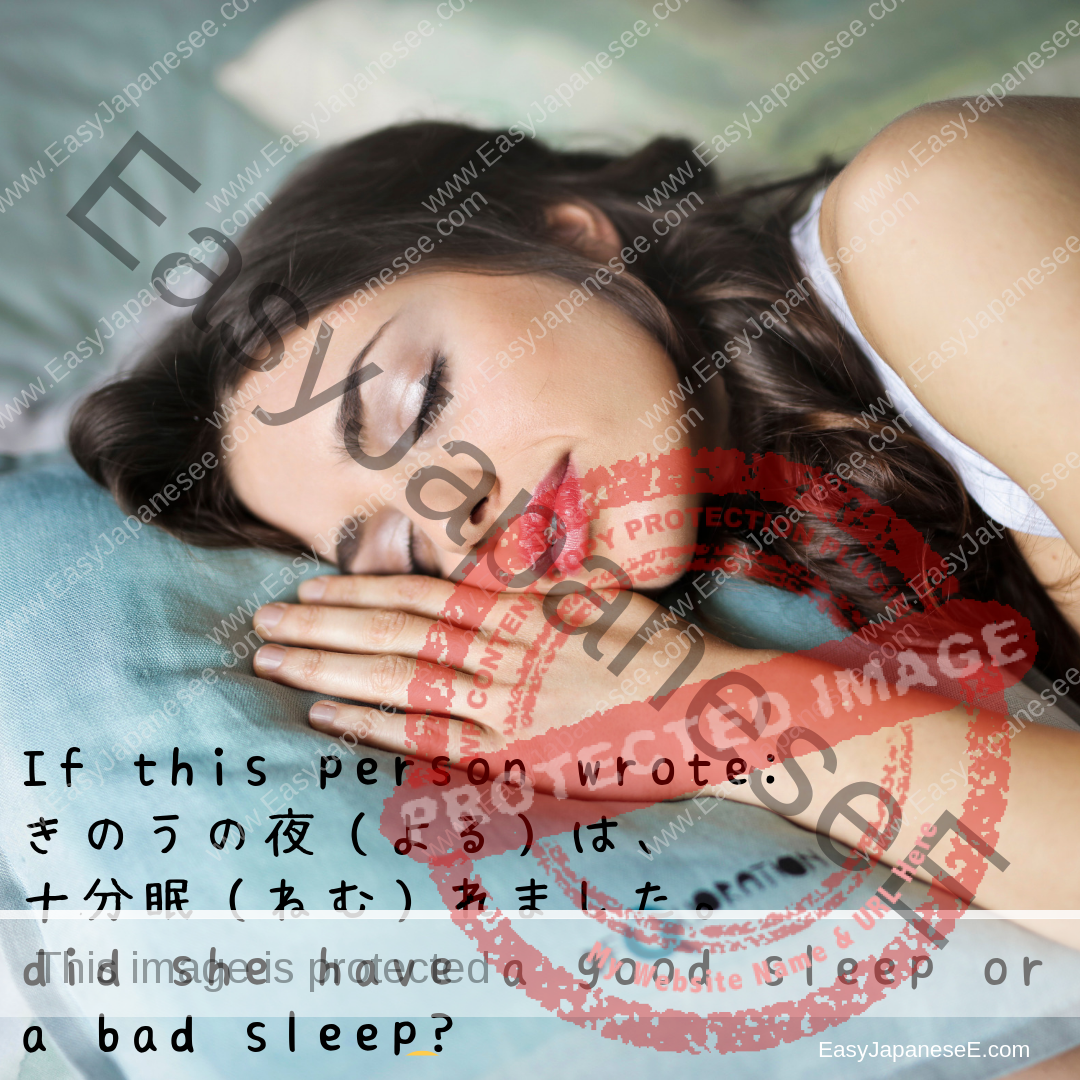If you are reading this article, that is probably because you were intrigued by the question in the photo. So what did you think? Did the writer have a good sleep or a bad sleep?
My answer is: “Probably a good sleep, but it is possible to interpret it as she had a bad (short) sleep.” Why would I say that?
That is because depending on how you pronounce 十分, the meaning of the sentence changes dramatically.
My Year 12s originally read 十分 as じゅっぷん (ten minutes), then the answer would be “a bad sleep” as it means “she was able to sleep 10 minutes last night.” However, if she meant that, she is more likely to say:
きのうの夜(よる)は、十分ほど眠(ねむ)れました。
= I was able to slept approximately 10 minutes (It is hard to tell if it was exactly 10 minutes or not).
or
きのうの夜(よる)は、十分しか眠(ねむ)れませんでした。
= I was able to sleep for only 10 minutes.
For this reason, I don’t think she meant to say that she had a bad sleep.
十分 can also be pronounced as じゅうぶん and that means “sufficient” or “enough.” In that case, the answer should be “a good sleep” and I think this is what she meant.
In order to avoid the confusion, however, she could have written it as:
きのうの夜(よる)は、十分に眠(ねむ)りました。
Unless it is indicating an exact time with the information with “o’clock” (such as 十時十分), “ten minutes” cannot be used with the particle に, so 十分に definitely means “sufficiently.” Or it could be written as:
きのうの夜(よる)は、充分眠(ねむ)りました。
充分 is another way of writing じゅうぶん, although the nuance is not exactly the same and most official documents will use 十分 instead of 充分 but here it is one way of making sure that the sentence gets understood correctly.
If you liked this post, please share it with your friends using the social media buttons below.

